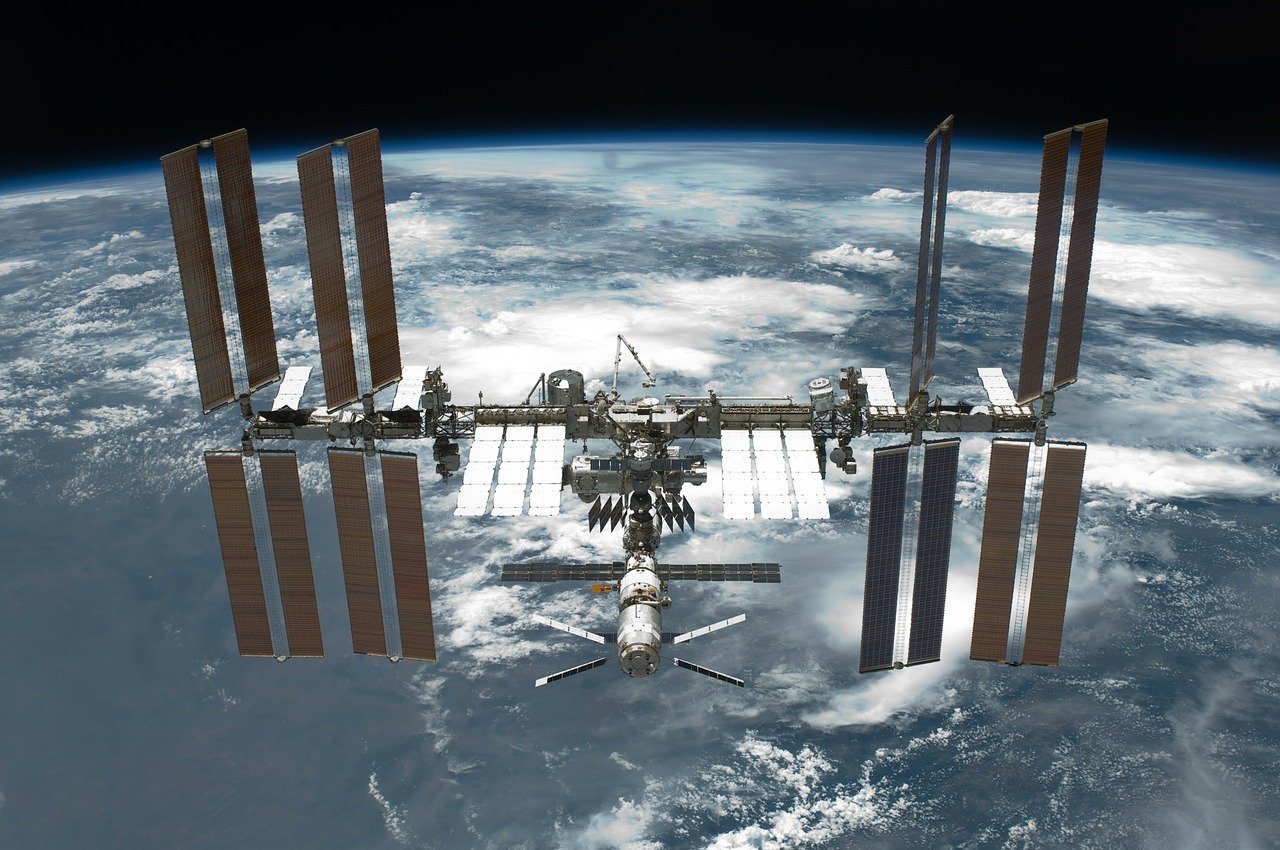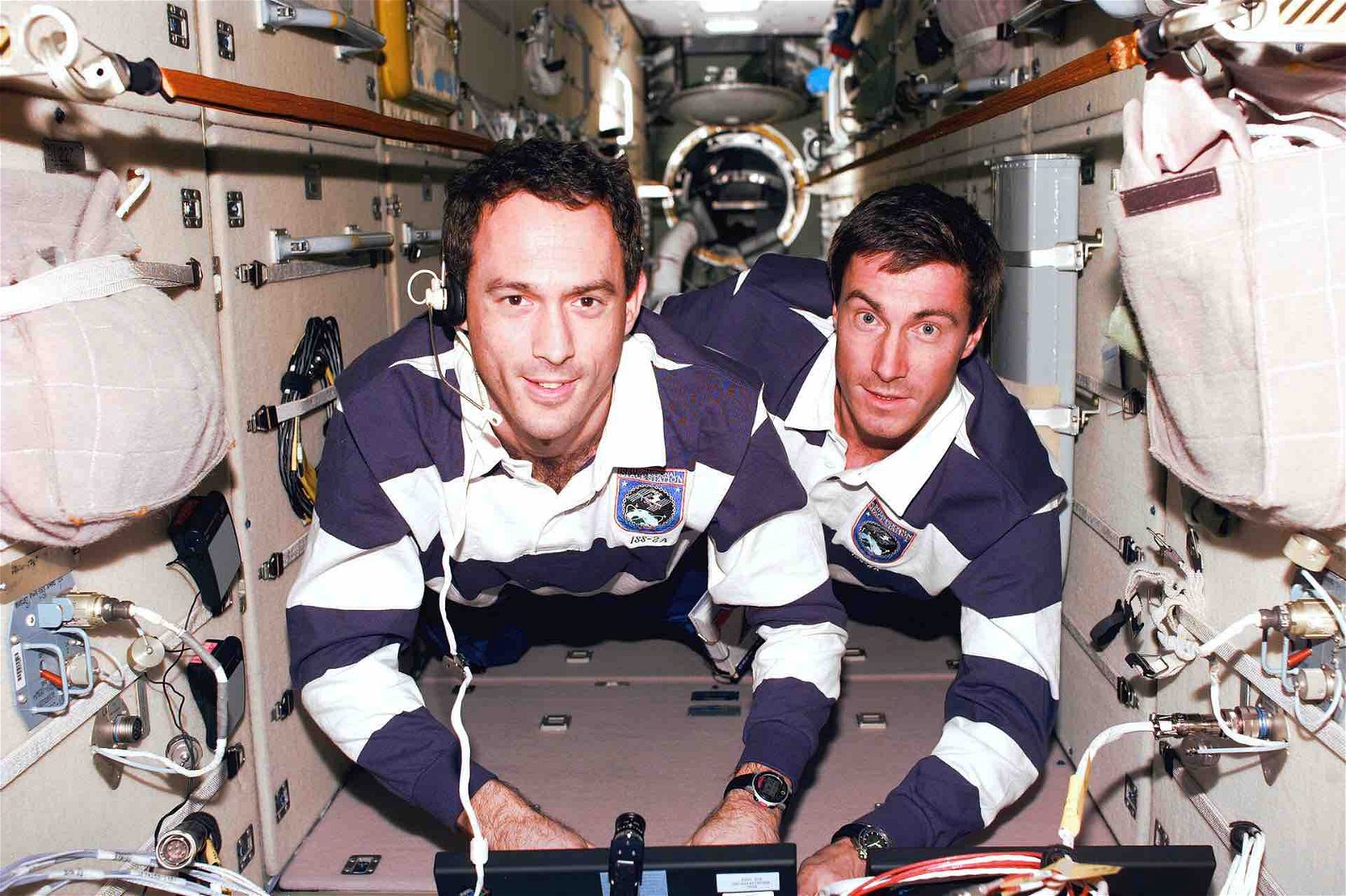

Welcome to this week’s installment of The Intelligence Brief… in this edition, as the Russian space agency is now looking at the possibility of continuing its space operations aboard the International Space Station beyond 2024, we’ll be looking at 1) Monday’s surprise announcement from Roscosmos, 2) the deeper history of tensions between the U.S. and Russia in space, and 3) what led to the sudden change of plans, and what that could mean going forward.
Quote of the Week
“Orbiting Earth in the spaceship, I saw how beautiful our planet is. People, let us preserve and increase this beauty, not destroy it!”
― Yuri Gagarin
Before we get into our analysis this week, a few of the stories The Debrief has been covering in recent days include a new that study proposes a novel theory of consciousness as a memory system that records our unconscious interactions with reality. Meanwhile, a team of physicists at Princeton Plasma Physics Lab says they have narrowed down what causes plasma disruptions during fusion reactions. Also, in an update on a controversial Ukrainian UAP study claiming to have captured images of unknown aerial objects, the study’s authors were recently taken to task by astronomers with the country’s National Academy of Sciences.
Also in video news, don’t forget to catch Chrissy Newton’s recent interview with Vanessa Keith, principal at the award-winning design firm Studioteka, about her book, 2100: A Dystopian Utopia—The City After Climate Change, as well as her forthcoming interview with computer scientist Jacques Vallee airing on Friday. As always, you can find all of our video reporting over on our YouTube Channel, and a complete listing of all our recent stories will be included at the end of this newsletter.
And with that, it’s time to take a look at what might have caused the Russian space agency to soften its tone in recent days, following an announcement on Monday that its participation aboard the ISS may continue on into the next few years, despite international tensions here on the ground.
Russia Seeks to Continue Operations Aboard the ISS
In a surprising turn of events, the Russian space agency Roscosmos is now looking to extend its participation in the International Space Station beyond 2024, according to a statement issued earlier this week.
The agency is reportedly in talks with Moscow about the continuation of Russia’s cooperative efforts aboard the ISS, according to Sergei Krikalev, who leads the agency’s human space flight programs. In a statement on Monday, Krikalev said Roscosmos hopes to “discuss extending our participation in ISS program with our government,” and hopes that it will receive “permission to continue next year.”
Russia’s participation in operations aboard the space station became complicated earlier this year following the country’s invasion of Ukraine.


Although Russia’s war in Ukraine has been a primary geopolitical stress point on the country’s international space operations, to say that the invasion had been the sole cause for Russia’s worsening relationship with its international partners in cooperative space efforts would be inaccurate.
In fact, mounting issues over the last several years have helped facilitate an on again, off again relationship between Russia and its international partners—namely the United States—that have threatened to hamper cooperative efforts in space between the nations.
The Deeper History of Russia’s ISS Issues
In April 2021, The Debrief reported that Russia had announced plans to build its own orbital space station by as soon as 2025. “Moscow is considering withdrawing from the International Space Station,” we reported, “which would end a decades-long relationship with the United States and other member countries.”
The announcement, it was reported, “follows rising tensions between Russia and the United States over espionage concerns, Russia’s imprisonment of opposition leader Alexei Navalny, and the mounting conflict in Ukraine.”
Once the situation in Ukraine became a full-blown conflict, Roscosmos went on the record stating that Russia planned to leave the ISS sometime after 2024, reiterating its plans to construct a space station of its own.


In March, Dmitry Rogozin, director of the Russian space agency Roscosmos, shot back at the U.S. following statements from President Biden about pending sanctions and their impact on Russia’s space program.
“Do you want to ban all countries from launching their spacecraft on the most reliable Russian rockets in the world?” Rogozin said in the Tweet. “This is how you already do it by limiting exchanges between our cosmonaut and astronaut training centers.”
“Or do you want to manage the ISS yourself?” Rogozin added.
A Change of Plans?
However, in a NASA press conference on Monday, Krikalev seemed to indicate that tensions had cooled somewhat and that Russia’s ambitions to build a space station are unlikely to come to fruition any time soon. This, especially considering material losses and other economic impactors the country has faced under mounting sanctions following its invasion of Ukraine.
Krikalev said that Russia “probably we will keep flying until we will have any new infrastructure,” but gave no timeline for when, or if, the country planned to begin construction on its proposed space station.
Monday’s statement from Krikalev coincided with an announcement that a Russian cosmonaut would join the two Americans and one Japanese astronaut aboard a SpaceX rocket that lifted off on Wednesday on its way to the ISS.


The continuation of Russia’s involvement with international space operations could be beneficial for the ISS in the short term, as Russia has provided a number of vital functional components to the station.
Given that other ISS partner countries have expressed similar sentiments as far as the continuation of operations aboard the ISS, it may be promising if the Russian space agency receives approval from Moscow to continue its participation beyond 2024. It may prove that space can continue to provide a refuge for cooperative scientific efforts between nations, even amid ongoing conflict occurring here on Earth.
That concludes this week’s installment of The Intelligence Brief. You can read past editions of The Intelligence Brief at our website, or if you found this installment online, don’t forget to subscribe and get future email editions from us here. Also, if you have a tip or other information you’d like to send along directly to me, you can email me at micah [@] thedebrief [dot] org, or Tweet at me @MicahHanks.


Here are the top stories we’re covering right now…
- Puzzling Plasma Phenomenon Could Hold the Key to a Breakthrough in Fusion Energy
A team of physicists at Princeton Plasma Physics Lab says they have narrowed down what causes plasma disruptions during fusion reactions.
- Study Finds Geological Layers the Likely Source of Reflective Spots on Mars, Not Water
Geological layers may be the source of Mars’ reflective spots, instead of water ice as previously thought.
- Is Consciousness Really a Memory System For Our Interactions With Reality? New Research Says Maybe.
A new study proposes a novel theory of consciousness as a memory system that records our unconscious interactions with reality.
- Controversial Ukrainian UAP Study Shot Down in Statement by Scientific Council
A Ukrainian UAP study claiming to have captured images of unknown aerial objects has been taken to task by astronomers with the country’s National Academy of Sciences.
- Rogue Planets: Potential Hosts to Life and Other Mysteries?
If interstellar travel agencies were to sell tickets for a ride on these relativistic planets, I would be first in line to board them.
- China Offers First Close-Up View of Its Secretive GJ-11 “Sharp Sword” Stealth Drone
China just offered a rare, first close-up view of its secretive GJ-11 stealth drone, which strongly resembles the U.S.’s RQ-170.
- Could This New Space Diamond Help Produce Better Machinery on Earth?
New research has revealed a pure form of lonsdaleite, a space diamond that may be able to help produce stronger machinery here on Earth.
- Are Intelligent Extraterrestrials Hiding from Us? In Fact, it Might Be the Other Way Around
Could intelligent aliens be hiding from us? A new research paper asks if a unique astronomical phenomenon could effectively hide Earth from any friendly aliens’ view.
- Annexation Won’t Help Russian Industry Recover Staggering Losses of Military Drones, Moscow Admits
Annexation of Ukrainian territory will do nothing to solve Moscow’s military woes, including Russian industry’s inability to produce military drones.
- Challenges in Creating ‘Robot Servants’ Pushes Timeline Back at Least a Decade
As innovations in modern robotics continue, experts say we still have a long way to go before the development of household robot servants.
- When Radiation Meets Metal: The Complicated Science of Material Failure
Welcome to this week’s installment of The Intelligence Brief… items in our queue this week include how a team of researchers at Sandia labs have recently undertaken studies of what causes metal and other materials to fail in extreme environments. Hence, we’ll be looking at 1) one of history’s most tragic examples of infrastructure failure, 2) how researchers are unraveling the mystery of material failure on the microscopic level, and 3) why computer modeling of how radiation affects atoms is so […]
- Skyscrapers in 2100: Award Winning Architect and Visionary Vanessa Keith Peeks into the Future.
Award-winning architect and futurist Vanessa Keith joins host Chrissy Newton to discuss the future of urban planning and skyscrapers while painting the picture of a potentially brighter future.
- Water on Mars? New Evidence for Liquid Water Beneath the Red Planet’s Polar Ice Caps
A brand new study significantly strengthens the case for lakes of liquid water beneath the polar ice caps of Mars.
- Bullets of Light: U.S. Army Will Soon Deploy its Stryker Combat Laser
After years of testing and development, the U.S. Army is finally ready to deploy a Stryker-mounted combat laser.
